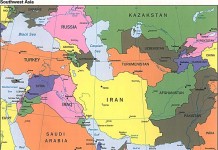Context
 As PM Erdogan visits US to meet President Obama, it is clear that Turkey is slowly getting sucked in the Syrian conflict. This was further validated by the bombings on May 11 in the border city of Rehanli, which killed about 50 people and wounding more than 100. The city hosts many Syrian refugees and reportedly is a hub for rebels active in Syria. According to Turkish authorities, Syrian intelligence is the usual suspected. Some have also linked the bombings to the talks meant to end the 30 years old Kurdish insurgency.
As PM Erdogan visits US to meet President Obama, it is clear that Turkey is slowly getting sucked in the Syrian conflict. This was further validated by the bombings on May 11 in the border city of Rehanli, which killed about 50 people and wounding more than 100. The city hosts many Syrian refugees and reportedly is a hub for rebels active in Syria. According to Turkish authorities, Syrian intelligence is the usual suspected. Some have also linked the bombings to the talks meant to end the 30 years old Kurdish insurgency.
Nonetheless, the incident has initiated a heated debate in Turkey about its policy on Syria. As previously pointed out by PoliTact, and others, Syria more and more resembles an Afghanistan of the Middle East. As such, it is now spreading and entangling Turkey, and likely Israel and Jordan, in the initial phase.
Heightened diplomacy is being witnessed on the Syrian crisis between Russia, UK and US, with a proposed international conference in a month that will seek a political solution. The differences over if Assad should stay or go, remain. With Turkey being dragged in and Israel warning of more strikes inside Syria, the region is at the precipice of a wider regional war.
Syrian response to a direct state intervention, such as continued Israeli air raids, is likely to come from its proxies. On the other hand, Israel has threatened more strikes and going after the Assad regime, which it claims to have not done so far, if Syria deploys its proxies or provides sophisticated weapons to Hezbollah.
Reportedly, the meeting between PM Netanyahu and President Putin, held in Sochi on May 14, did not go well. Russia warned Israel against any more air strikes in Syria. Meanwhile, PM Netanyahu attempted to convince Putin to not sell its sophisticated S-300 air defense system to Syria.



